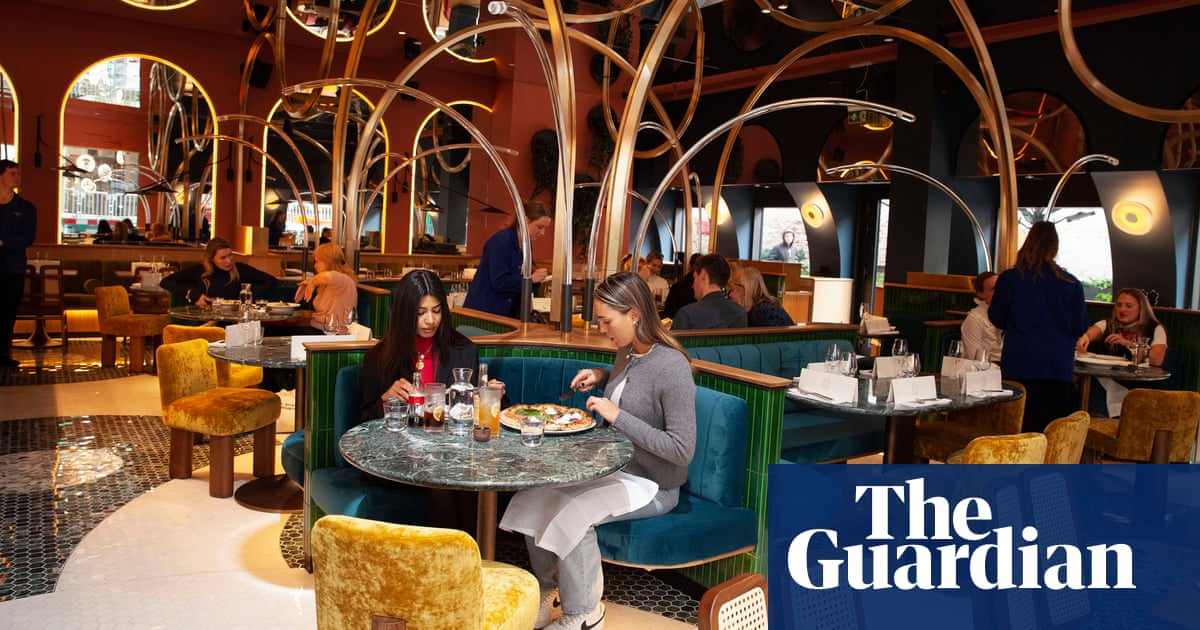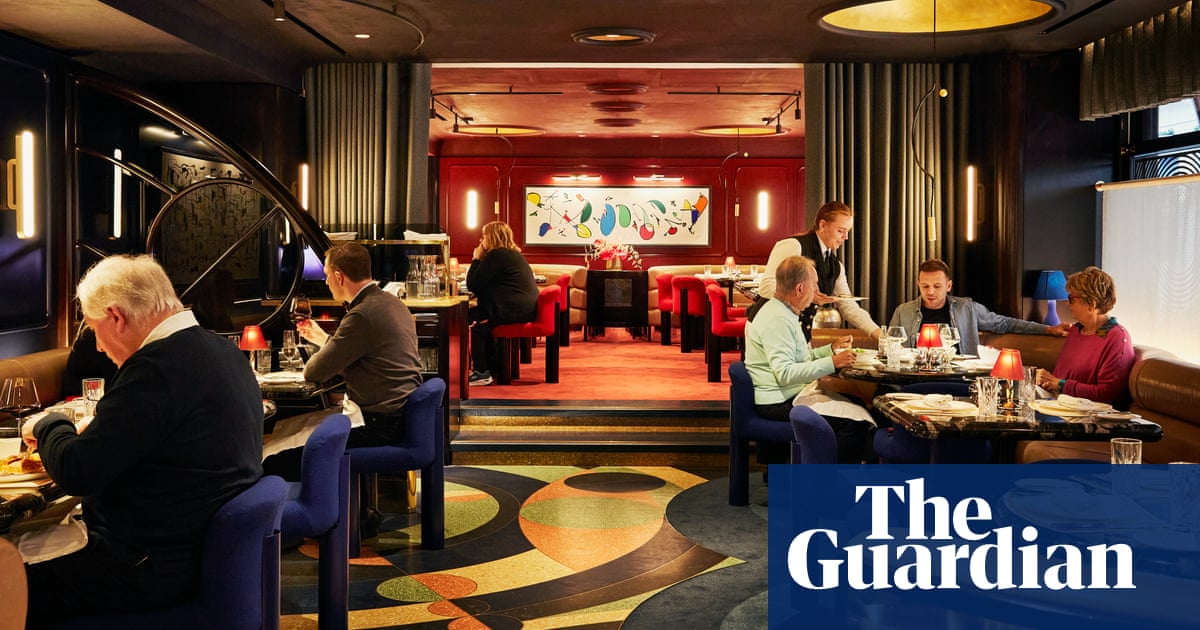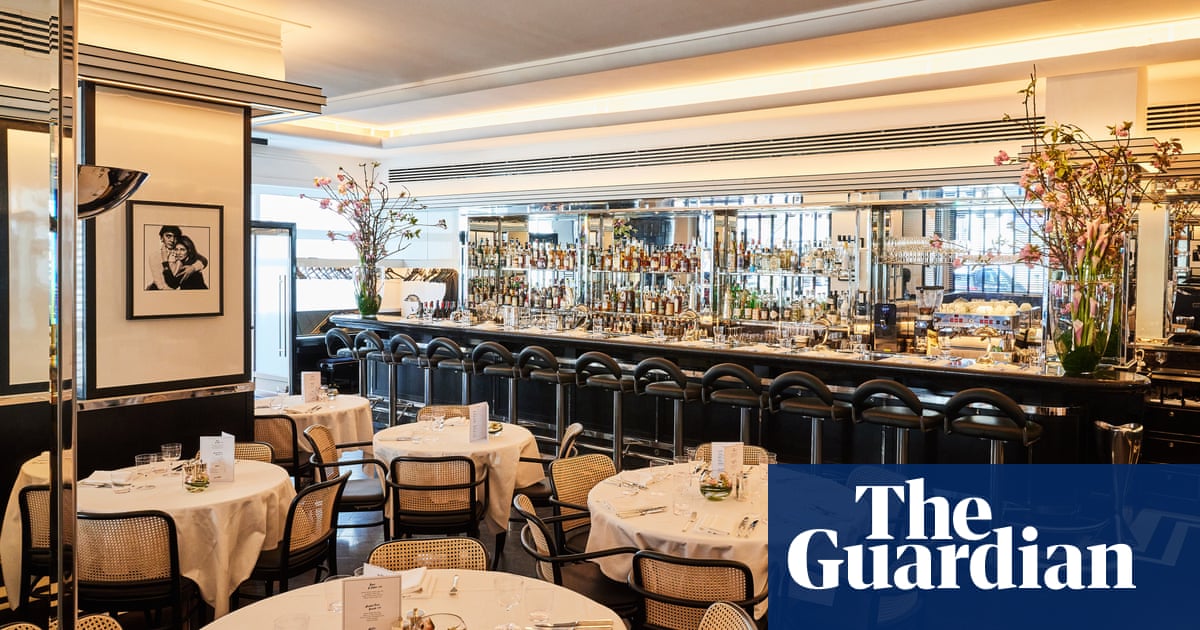
Bibi is a new high-end opening in the capital, of which there is currently no shortage. “High-end” is a coy way that hospitality people communicate the notion of imported chandeliers, four-ply loo roll, complex cocktails, teensy portions on beautiful tableware and, outside, a Mercedes-AMG wagon being clamped by Westminster council. These restaurants have survived the Covid maelstrom.
In Knightsbridge, a petty little pandemic wasn’t going to stop the Nusr-et juggernaut rolling into town, foisting its grotesque, gold leaf-wrapped steaks at the cerebrally awry, while over at the Savoy, Gordon Ramsay is on the verge of opening a second restaurant serving caviar on nori waffles. The list goes on, but Bibi – a modern Indian restaurant on North Audley Street, where rows of Bugattis, Bentleys and Rolls-Royce Phantoms park to pick up a few bits of grocery from Selfridges food hall – proves that not all high-end restaurants are built equally.
It is backed by the JKS group, which also owns Gymkhana, as well as numerous other well-loved restaurants such as Hoppers, Lyle’s and Bao, although it is the incessantly booked-up and undoubtedly groundbreaking Gymkhana that Bibi puts me in mind of most. Since my dinner at Bibi on a recent Friday, I’ve recommended this odd, experimental, beautiful restaurant for both date nights and those needing to lovebomb clients. Yes, it’s not cheap and cheerful – a small, delicate plate of raw Highland beef pepper fry with fermented Tellicherry peppercorns costs £14, while five pieces of okra will set you back £8 – but the fragrant okra is like nothing I’ve tasted elsewhere. I’d happily bathe in its peanut sauce, sploshing it about my armpits and behind my ears, before dressing without showering.
Bibi’s chef, Chet Sharma, is a trained physicist who worked at the Ledbury, Gymkhana and Moor Hall before becoming JKS’s head of menu development. He is part genius and clearly part subversive, as are all the best people to leave in charge of your dinner. You’ll know this from the moment you step into his new restaurant, sit up at the counter, take in the mock-Rajasthani design and gleaming, mango wood furnishings, and order a plate of sweetcorn kurkure, which are absurdly compelling, deep-fried bullets of kernels rolled in at least 20 spices and served hot and crisp. They pair perfectly with a kulukki sharbath, a cloudy Indian lemon juice with a green chilli kick and laced with sabja seeds, which lend it a delightful, frogspawny texture. Sharma’s other bar snack is a Wookey Hole cheese papad, or heavenly, luxury, super-sized Quavers with a cultured cream dip layered with mango preserve and green chutney.
Bibi’s pretty polished floors, ornate ceiling, gloriously obsessive menu (it details where on the subcontinent every spice hails from) and precise, professional and deftly drilled service all add up to the sensation that here is a place that takes hospitality very seriously. And perhaps that’s another reason I loved it so much, because there are a lot of headless chickens running about at the moment. The Bibi team is definitely not one of those; JKS has put its best players in here, and now is the time to take advantage of them.
Dishes are undeniably rather small and supposed to be shared, although your average, fork-wielding heffalump such as myself could easily finish them alone. Do not mistake, say, chukh masala tikka for a saucy vat of crimson-coloured chicken; it is instead a small portion of marinated boneless thigh, a succulent and Vesuvius-hot spin on the curry house classic – Charles has been raving about it for days and days, and nagging me to go back so he can try the Lahori chicken with cashew and yoghurt whey. Buffalo paneer is similarly brief and meaningful, barely larger than a credit card, but I still remember its dainty, milky texture and the taste of the charred onion and pepper fresh from the Sigree grill that titivates many of Bibi’s dishes, while I suspect that the achari Swaledale lamb saddle, at £16 for two chops, will become one of the place’s signature dishes. I mostly grazed around the vegetable side of the menu, dipping numerous roomali rotis into oozy puddles of rich, grass-fed ghee dal and finishing off the kaima yakhni pulao rice that’s simmered in chicken stock.
Every dish was unusual, unexpectedly presented and a playful reimagining of a classic, which is exactly how I felt about Gymkhana all those years ago. JKS has a habit of creating dishes to puzzle and obsess, while rewriting the playbook in a self-effacing manner; it’s the antithesis of Salt Bae and his £100 burgers that will change your life (spoiler alert: they will not). I rarely eat dessert in Indian restaurants, because I’m never disciplined enough to leave room for a final hurrah, but at Bibi they’ve even thought of that and offer tiny preserved mango kulfi ice lollies, a bit like Mini-Magnums, and all silky-sweet and soothing.
Bibi has made 2021 bearable. I don’t have a Bugatti to get there, but when I sit upstairs at the front of the Number 73, it feels as if I’m driving, and that’s just as good.












